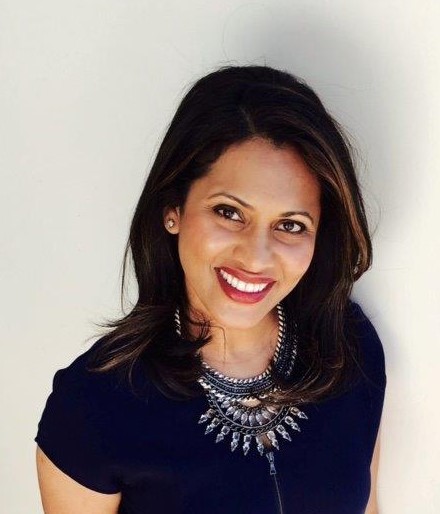ASU professor wants medical students to see the big picture

Swapna Reddy, clinical assistant professor for School for the Science of Health Care Delivery at ASU, will teach a course on global public health to the inaugural class of medical students attending the Mayo Clinic School of Medicine — Arizona, with jointly developed curriculum in the science of health care delivery under the Mayo Clinic and ASU Alliance for Health Care.
Growing up the daughter of a medical doctor, Swapna Reddy is no stranger to the health-care system. Her mother managed the front office of her father’s practice in Houston, Texas, where Reddy picked up the family business.
This exposure at a young age to the ins and outs of health care gave Reddy an intimate understanding of the challenges facing those providing and receiving care. Today, the experience informs her teachings at Arizona State University’s College of Health Solutions, where she works as a clinical assistant professor in the School for the Science of Health Care Delivery.
But unlike her parents, Reddy’s passion for improving public health initially led her to the courtroom, rather than the waiting room.
“I’ve always been interested in issues that relate to women, children and underrepresented populations and thought studying the law would be the best avenue to gain the tools and skills to be able to advocate for these groups,” Reddy said.
Armed with a law degree from the University of Houston Law Center, Reddy entered the world of corporate health care law, only to find the work did not match her ambitions. Seeking a more fulfilling experience, she shifted gears from corporate advocate to patient advocate, obtaining a master’s degree in public health from the Boston University School of Public Health.
She then landed what she describes as “the job that had the most impact” on her professional ambitions, as a senior health policy associate at the Children’s Defense Fund in New York City. Under the tutelage of the organization’s founder and president, civil rights icon Marian Wright Edelman, Reddy worked to improve health care access for low-income children and their families.
The Children’s Defense Fund, she said, opened her eyes to the health care inequities experienced by low-income populations, and the role that social determinants of health play in building healthy communities.
“I saw firsthand how certain groups were disproportionately affected,” Reddy said. “Until factors such as low quality housing, availability of affordable and healthy food, access to health insurance programs, and health education were improved in the lives of these children, their health would never actually improve.”
Swapna Reddy
She’ll draw on these experiences this winter when she teaches a course on global public health to the inaugural class of medical students attending the Mayo Clinic School of Medicine — Arizona, with jointly developed curriculum in the science of health care delivery under the Mayo Clinic and ASU Alliance for Health Care. These students will receive a one-of-a-kind education that prepares them to not only work as successful practitioners, but also to become leaders within the health care industry.
Students will be exposed to specialized curriculum that goes beyond the traditional coursework, what Reddy calls the “next frontier” in medical education. Students enrolled in the medical school will concurrently receive a medical degree from the Mayo Clinic School of Medicine and a certificate in health care delivery from ASU’s College of Health Solutions, preparing them to tackle individual, systemic and global health care challenges.
“What I’m most excited for is developing health care leaders and advocates because theirs is such a unique and important voice — and people listen,” Reddy said. “It’s vital for providers to understand the issues, not just reimbursement, but issues related to population health, quality improvement and policy—all factors that affect the larger lives of their patients — and then become advocates.”
Reddy saw firsthand the impact that physician advocates can have in the public arena while working at the Texas Capital for a member of the health and human services committee.
“Making health more equitable is a powerful tool in improving social justice in our society,” she noted. “I learned how responsive health policies had this incredible ability to make a direct change in people’s lives. This change was most possible where communities in need had true advocates in the private and public sectors, but also when they were able to advocate for themselves.”
Empowering students to become advocates for their patients and profession is something Reddy hopes her students will take away from her class.
“At the end of the day, what I really want them to understand is the big picture — that there is more to health care and the provision of medicine than the mechanics.”
It’s a message she says her father — who she describes as “old school” — wishes he had heard earlier in his career. “He is from a generation that says, ‘it’s my job to focus on the practice of medicine.’ He’s now at a place in his career where he’s saying, ‘I wish I knew more about this.’”
As for the students who will come through her classroom in the coming months, she’s hopeful that they will embrace her teachings.
“I’m really optimistic about our health care workforce of the future because I see them, and they get it. They get these social issues in a way that is unique to their generation.”
More Health and medicine

Bird flu: Your questions on symptoms, spread and safety answered
Bird flu is no longer only “for the birds.”Infections have expanded beyond wild birds and poultry to a range of animals — from…

Making medicine side-effect free
Many drugs that address medical conditions can come with serious side effects. In drug commercials, the litany of potential side…

Diagnostic research happening at ASU focused on detecting diseases earlier to save lives
It was one of America’s founding fathers, Benjamin Franklin, who may have foreshadowed today’s health care innovation when he…


